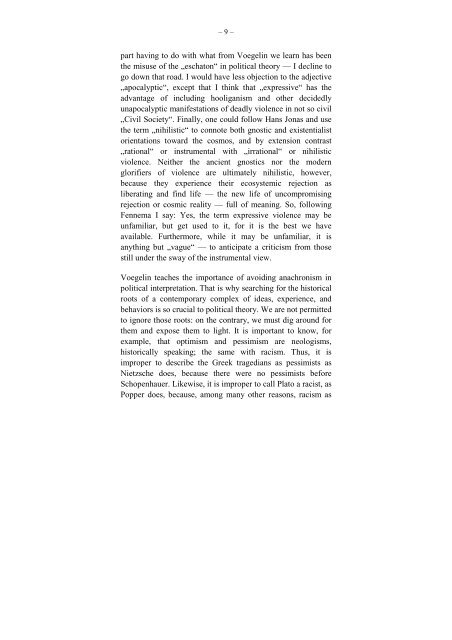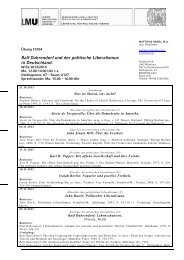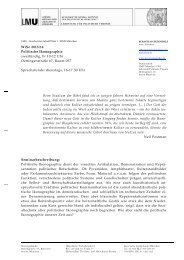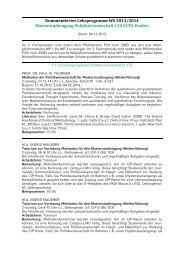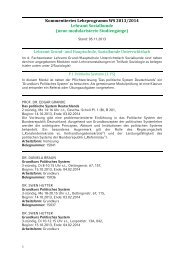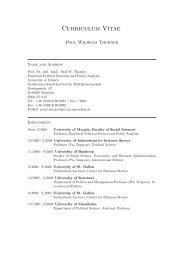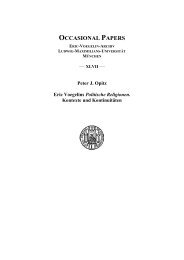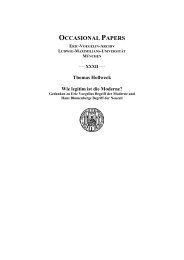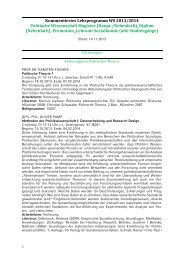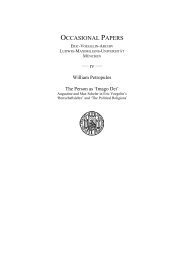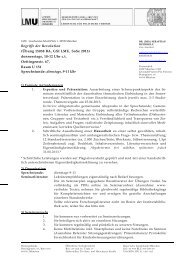Eric Voegelin.pdf - Geschwister-Scholl-Institut für Politikwissenschaft
Eric Voegelin.pdf - Geschwister-Scholl-Institut für Politikwissenschaft
Eric Voegelin.pdf - Geschwister-Scholl-Institut für Politikwissenschaft
Create successful ePaper yourself
Turn your PDF publications into a flip-book with our unique Google optimized e-Paper software.
– 9 –<br />
part having to do with what from <strong>Voegelin</strong> we learn has been<br />
the misuse of the „eschaton“ in political theory — I decline to<br />
go down that road. I would have less objection to the adjective<br />
„apocalyptic“, except that I think that „expressive“ has the<br />
advantage of including hooliganism and other decidedly<br />
unapocalyptic manifestations of deadly violence in not so civil<br />
„Civil Society“. Finally, one could follow Hans Jonas and use<br />
the term „nihilistic“ to connote both gnostic and existentialist<br />
orientations toward the cosmos, and by extension contrast<br />
„rational“ or instrumental with „irrational“ or nihilistic<br />
violence. Neither the ancient gnostics nor the modern<br />
glorifiers of violence are ultimately nihilistic, however,<br />
because they experience their ecosystemic rejection as<br />
liberating and find life — the new life of uncompromising<br />
rejection or cosmic reality — full of meaning. So, following<br />
Fennema I say: Yes, the term expressive violence may be<br />
unfamiliar, but get used to it, for it is the best we have<br />
available. Furthermore, while it may be unfamiliar, it is<br />
anything but „vague“ — to anticipate a criticism from those<br />
still under the sway of the instrumental view.<br />
<strong>Voegelin</strong> teaches the importance of avoiding anachronism in<br />
political interpretation. That is why searching for the historical<br />
roots of a contemporary complex of ideas, experience, and<br />
behaviors is so crucial to political theory. We are not permitted<br />
to ignore those roots: on the contrary, we must dig around for<br />
them and expose them to light. It is important to know, for<br />
example, that optimism and pessimism are neologisms,<br />
historically speaking; the same with racism. Thus, it is<br />
improper to describe the Greek tragedians as pessimists as<br />
Nietzsche does, because there were no pessimists before<br />
Schopenhauer. Likewise, it is improper to call Plato a racist, as<br />
Popper does, because, among many other reasons, racism as


